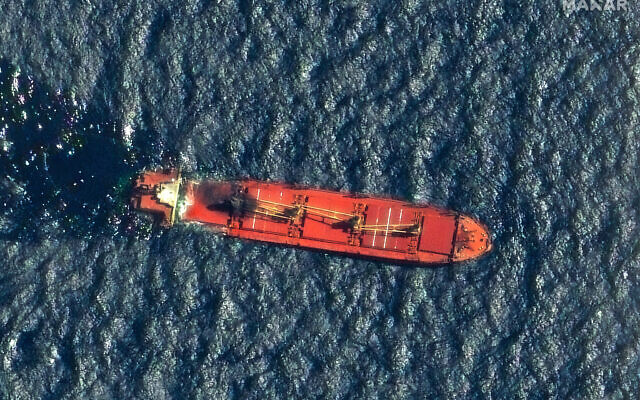
Belize-flagged cargo ship Rubymar, damaged in a February 19 missile strike claimed by the Iran-backed Houthi rebels, floats in the Red Sea. (Satellite image ©2024 Maxar Technologies)
The British-owned bulk carrier M/V Rubymar, damaged by a Houthi missile strike, has sunk in the Red Sea. The vessel was carrying 21,000 metric tons of fertilizer which now poses an environmental risk in the area. The US Central Command confirmed the sinking and highlighted the danger it poses to other ships in the busy shipping lanes of the Red Sea.
The Yemen-based terror group known as the Houthis has been involved in attacks on naval traffic, including their recent hostage situation involving the FSO Safer oil tanker. Greenpeace MENA has shown concern over the impact of these incidents on marine ecosystems and coastal communities in the region.
As the Red Sea is home to unique coral reefs and popular tourist destinations like Sinai, the ongoing conflicts in the area are threatening the future of tourism. Despite these challenges, efforts are being made to assess the situation and come up with emergency plans to mitigate the environmental risks.

Trankila Beach in Sinai is surrounded by coral reefs that aren’t doing well.
The situation in the Red Sea, with its diverse marine life and important tourist destinations, is at risk due to ongoing conflicts and environmental incidents. Efforts are being made to address these challenges and protect the fragile ecosystems of the region.






